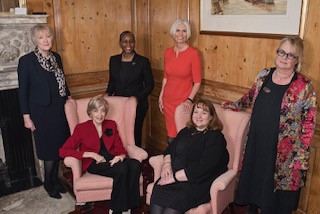Losing a loved one is never easy, and sorting out their affairs can be a stressful and confusing process. This is especially true if a loved one has died without a valid Will, when it can be harder to ascertain what will happen to their assets. If you are considering whether or not to make a Will, it is also important to know what will happen to your possessions and assets if you die without one so that you can make an informed decision on what to do. Making a Will is one of the few things you can do to make life easier for your family and friends after you’ve gone
At Scott-Moncrieff we understand how difficult it is when a loved one passes away, but we are here to support you. If you have any questions about the procedure where there is no Will, or you are considering making a Will, contact us today on 020 3972 9011 or complete our online enquiry form to discuss your specific circumstances.
What happens if somebody dies without a will?
When somebody dies without a Will, the division of their possessions and assets is governed by intestacy law. Intestacy or 'dying intestate' are the legal terms for a situation when someone dies without a Will. Intestacy law also applies if a person has made a Will, but it is not considered legally valid.
People who are married or in a civil partnership
Under intestacy law, a person's assets will go first to their spouse or civil partner. If their estate is valued at over £250,000 and they have living descendants, a married or civil partner will inherit the first £250,000 and then half of the other assets. The rest will be divided equally amongst the intestate person's children.
If a child of the deceased has died, then their children (the intestate person's grandchildren) inherit that person's share between them. The same applies to great-grandchildren if both a child and a grandchild have died, so if a child would have inherited £100,000 and has two children, each grandchild inherits £50,000. If one grandchild has died, and also has two children, each great-grandchild inherits £25,000.
People who are not married or in a civil partnership
Unmarried partners cannot inherit under intestacy law, so it is vital to make a Will if you want your partner to inherit a share of your estate after you die. If an intestate person was not married or in a civil partnership, then their children will inherit their estate in equal shares. The same rules about when grandchildren or great-grandchildren can inherit apply.
Contact our Wills Lawyers in London
Whether you are navigating intestacy proceedings or considering making a Will, we can help. The specialist Wills solicitors at Scott-Moncrieff provide clients with a comprehensive service when it comes to preparing, updating and amending your Will. Our lawyers provide clear, pragmatic advice delivered in a straightforward and jargon-free manner.
For more information get in touch via our online contact form or call our team now on 020 3972 9011 .















